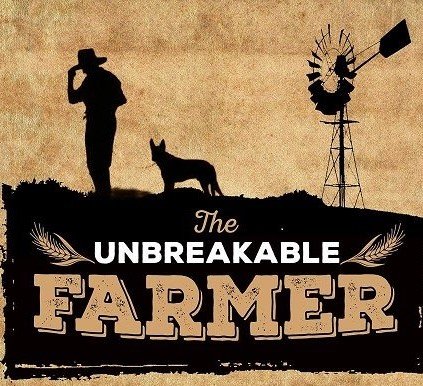The Weight We Carry: Rural Australia’s Silent Struggle
As someone who works closely with rural, regional, and remote communities across Australia, I’ve seen resilience in every corner of this country. But I’ve also seen the cracks not just in the ground, but in the people.
Right now, many communities are doing it bloody tough. In Victoria, months of dry conditions have left farms struggling, paddocks bare, and spirits drained. Families are hanging on by a thread. Businesses in small country towns are running on fumes. And then came the blow of the emergency services levy a cost that feels unfairly timed and unfairly placed, hitting people while they’re already on their knees.
But while Victoria and South Australia dries out, other parts of the country are facing the opposite. On the northern coast of New South Wales, relentless rain have soaked the land. Flooding on the Central Coast has devastated homes and businesses and cut off properties.. And in Central Queensland, floodwaters have once again displaced families and destroyed livelihoods.
It doesn’t matter if it’s drought or flood the result is the same: exhaustion. Burnout. A quiet, creeping hopelessness that no one wants to admit out loud.
I know this, because I hear it every day. My phone doesn’t stop. The messages, the emails, the conversations in paddocks, at community halls, and across kitchen tables they all carry the same weight. People are tired. They’re feeling forgotten. And many are too proud, or too worn out, to ask for help.
This isn’t just about weather patterns or economic hardship. It’s about mental health. It’s about what happens when you try to hold everything together for too long. When you keep showing up, day after day, but inside, you’re crumbling. It’s about the silence that grows when you don’t want to be a burden or don’t know what to say.
And it’s not just happening on farms. It’s happening in the towns too in the shops, the small businesses, the schools, and the health clinics. It’s happening to the people we rely on to keep our communities ticking and they’re burning out too.
There’s a loneliness that comes with this kind of pressure. A sense that no one gets it. That no one’s really listening. And the thing is, when you’re out in the bush, that feeling of isolation can be deadly because you really might not have anyone close by to check in.
But here’s the truth: you’re not alone. Even if it feels like it. Even if you haven’t spoken about it. Even if you think you’re the only one who’s struggling.
Because the reality is we all struggle. At some point, in some way, we all face moments where it feels too hard. And it’s in those moments that connection matters most.
We need to be talking about this out loud, openly, and without shame. We need to remind people that asking for help isn’t a sign of weakness it’s a sign of courage. That being vulnerable doesn’t mean you’ve failed it means you’re human.
It’s time we stop pretending we’ve got it all together and start having real conversations. Conversations that go beyond the weather or the footy score. Conversations that ask, “How are you really going?” and give someone the space to answer honestly.
And it’s not just about having a chat – it’s about knowing where to turn if things are getting too much. There are good people and services out there doing incredible work organisations like Lifeline, TIACS, Rural Aid, Drought Angels, and your local health services. They’re ready to listen. Ready to support. Ready to walk beside you.
We need to amplify their voices. Not just when a crisis hits, but every day. Because mental health is not something we can afford to keep in the shadows anymore.
Our rural communities are built on strength but strength doesn’t mean doing it alone. True strength is showing up for each other. Checking in. Offering a hand. Being open about our own struggles so that others feel safe to share theirs.
There’s still heart in our communities. Still fight. Still connection. But we need to protect it nurture it and make sure people know it’s there when they need it most.
This is not just a drought story. It’s not just a flood story. It’s a story of people. Families. Mates. Communities trying to keep going when the odds feel stacked against them.
Let’s make sure no one has to walk that road alone.
If you or someone you know is struggling and your conversation is too big for your support network, please reach out to one of these services:
Lifeline – 13 11 14
TIACS (This Is A Conversation Starter) – 0488 846 988
Beyond Blue – 1300 22 4636
Rural Financial Counselling Service – 1300 771 741
Men’s Helpline – 1300 78 99 78
Suicide Call Back Service – 1300 659 467
Your GP or local mental health triage service
Drought Angels – 1300 327 624
Rural Aid – 1300 327 624
You're not alone. And you don’t have to carry the load by yourself.
